Stranded with 6,000 pounds of yarn, Penndel carpet maker shares the wealth
Listen-
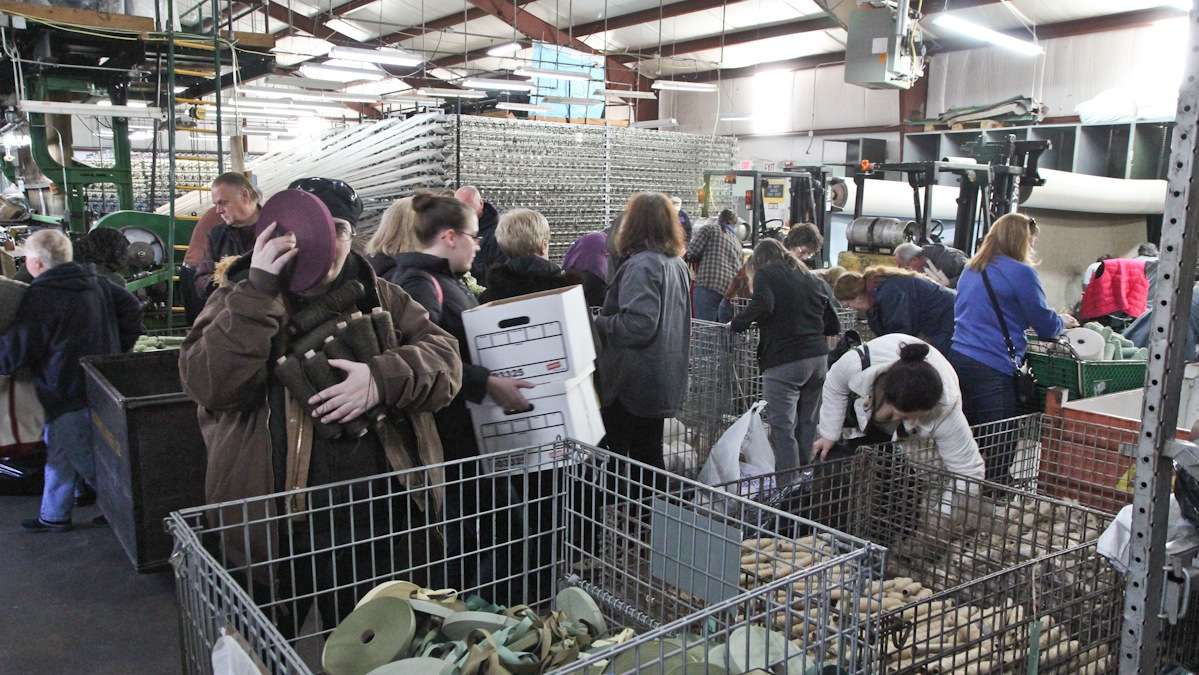
-

Langhorne Carpet Company gives away more than 5,000 pounds of yarn after a 2013 fire forced the company to get new materials for quality control. (Kimbelry Paynter/WHYY)
-

-
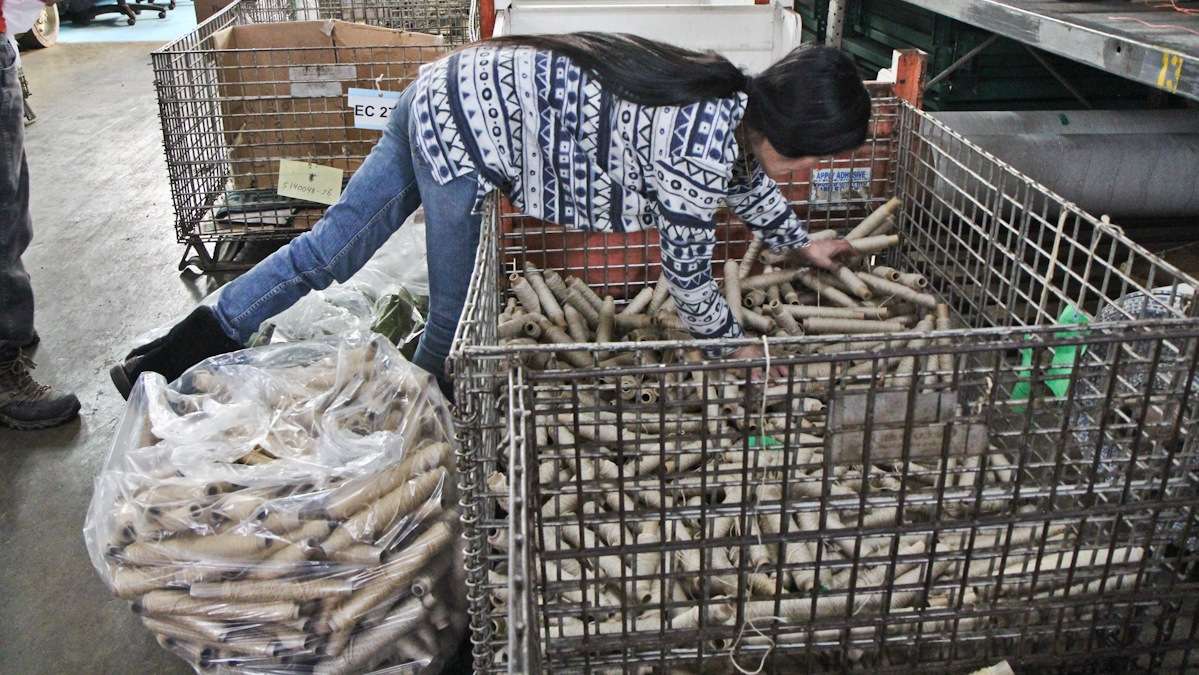
-

-
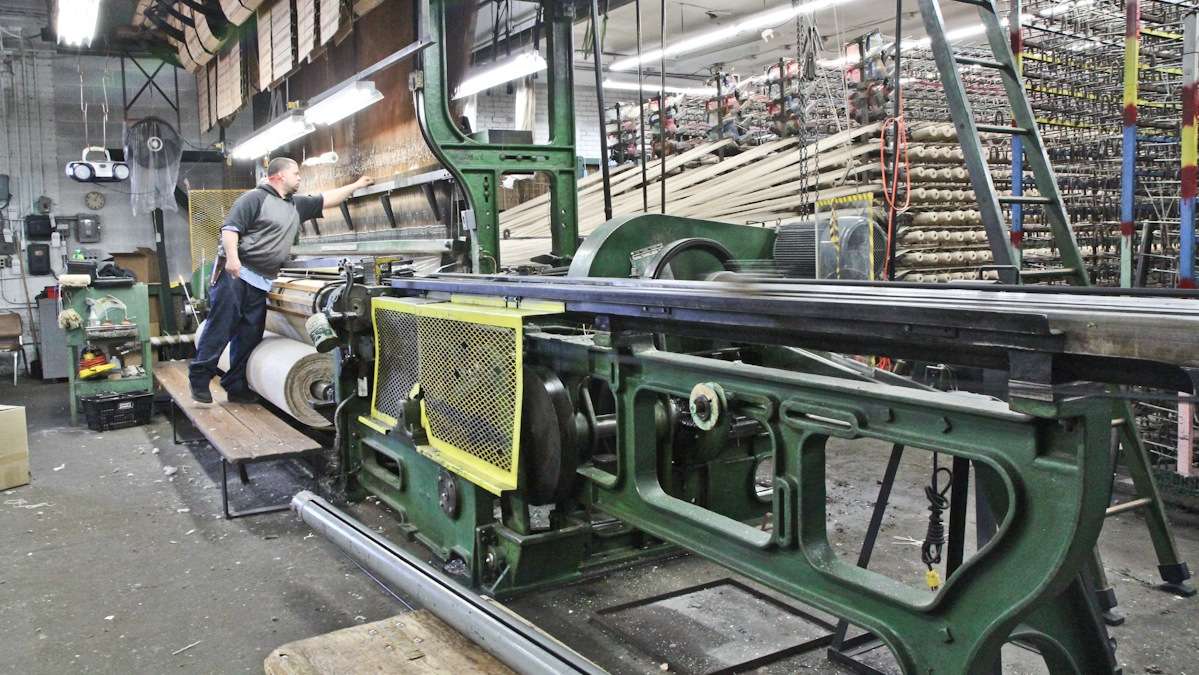
-

-
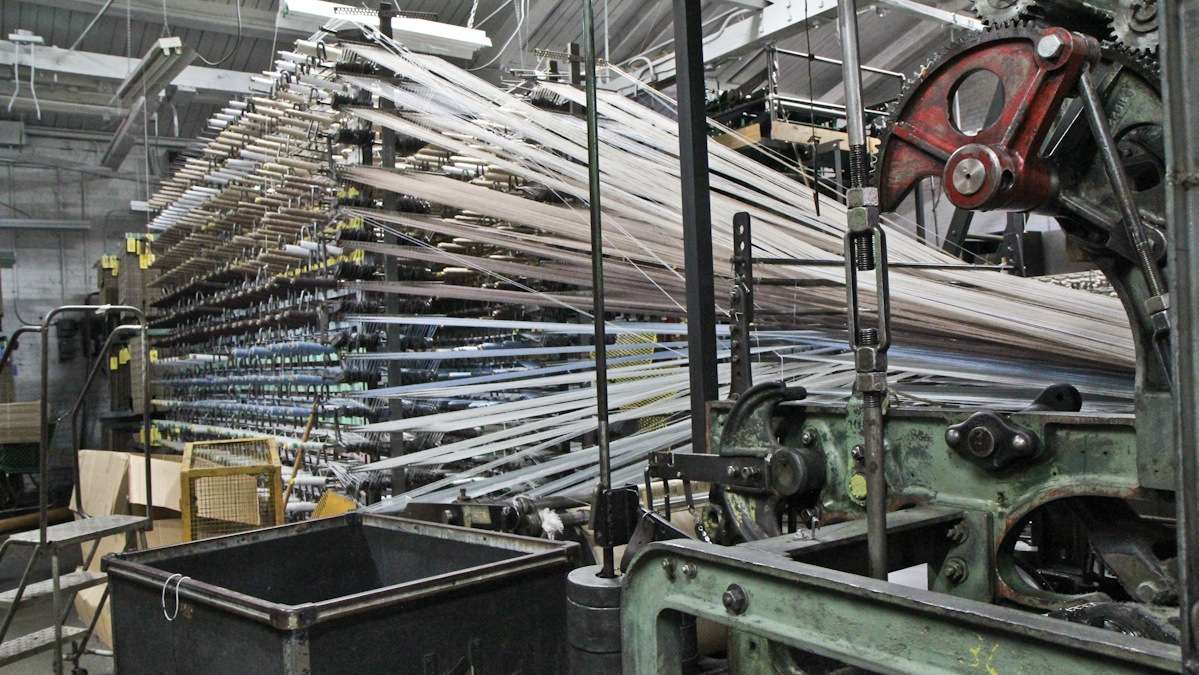
-
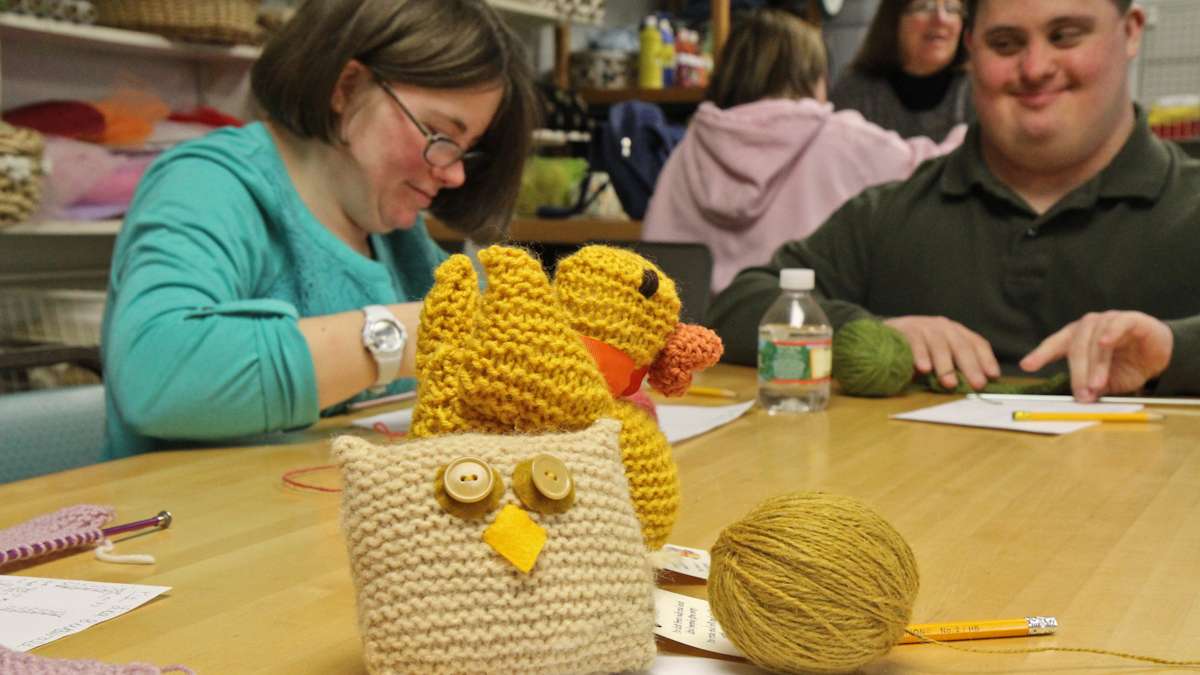
-
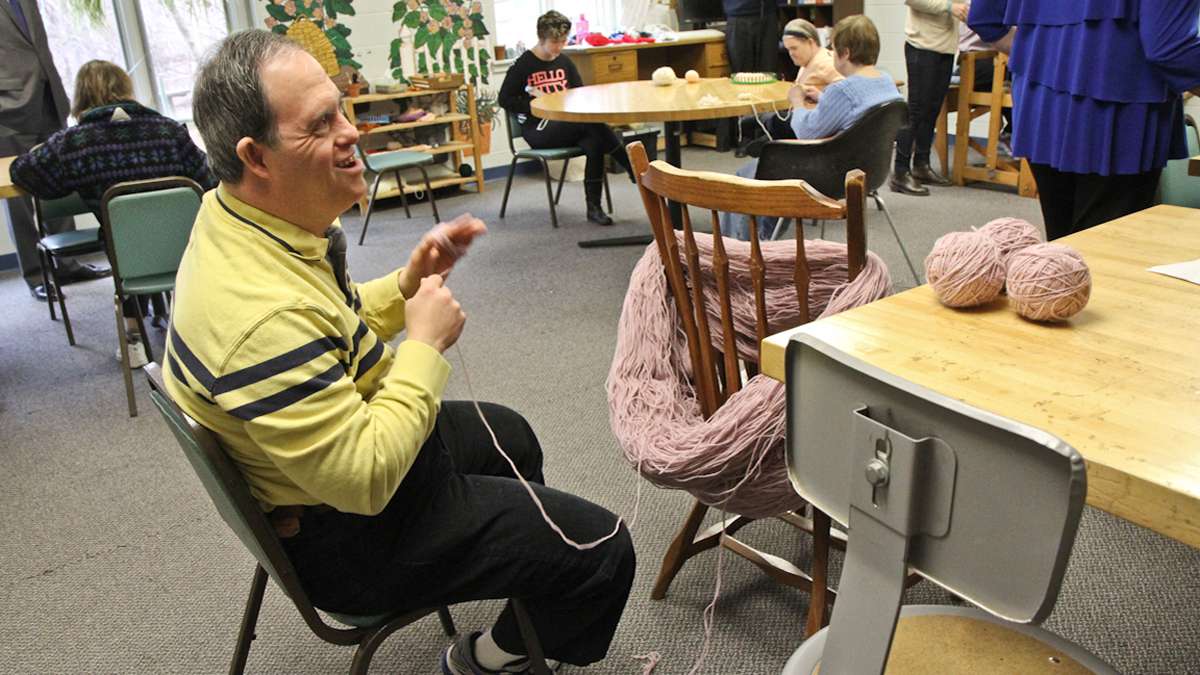
-

The story of “Brewster’s Millions” has been retold several times in movies. The challenge of giving away enormous amounts of money is still daunting.
Same goes for yarn.
The Langhorne Carpet Company, a manufacturer of high-quality, traditionally-woven carpets in Penndel, Pa., experienced a small fire last summer.
“Our dryer caught fire. There were cotton leaders in the dryer. It was an accident,” said owner Bill Morrow. “There wasn’t a lot of fire damage. The fire department was here in about 15 minutes and put out the fire, but it was enough time to get a sooty smoke to penetrate the mill.”
A few weeks ago there was no smell of smoke inside the carpet mill, only sounds of large-scale mechanical looms at work. The mill was operating at 85 percent capacity.
“The thing about smoke is that it is very deceptive,” said Morrow. “It’s often atmospheric changes that cause smoke to come out. Oftentimes people have a fire in their house, and it’s cleaned. Six months later, it becomes fall, or spring and their house smells like smoke again.”
Selling a potentially smoky carpet is a legal liability, so Morrow’s insurer told him to get rid of his entire stock of yarn. He says the insurer cut him a check and hauled away six tractor-trailers packed with the stuff. The remainder was not enough to fill a shipping container, so Morrow was left with about 6,000 pounds.
The first thing he did was call everyone he knows who could use a few spools of yarn. Thousands of pounds went to design schools with textile programs such as the University of the Arts and Philadelphia University. Much of the donation to Philadelphia University was redirected to the Charter High School for Architecture and Design in Philadelphia.
Some of the yarn went to a industrial knitting start-up ADMK, which experiments with computer-automated knitting machines. Proprietor Andrew Dahlgren is making a line of hot-pot trivets, each with a unique color pattern from using leftover yarns.
Some of the yarn went to Melmark, an assisted living facility in Easttown, Pa., for adults with developmental disabilities. The facility in Chester County has a strong crafting program, including knitting, needlepoint, and a small loom. The clients make stuffed animals, placemats, and other household items for sale.
“They each earn a share. That’s a paycheck they get,” said Bonnie Warren, who teaches knitting and weaving at Melmark. “We want all the money to go to them; we don’t want to be buying supplies. When [Langhorne] called us to come get stuff, we were really excited.”
Melmark sent a van to Penndel and stuffed as much yarn into it as would fit, but it was not enough. After the industrial-sized giveaways, Morrow was still left with hundreds of pounds of yarn, trim, and carpet samples. So he held an open house: a free-for-all for anyone who came in the door. Grab what you can until it’s all gone.
Joanne and Wayne Dionne drove up from the Washington, D.C., area to get yarn for themselves and all their friends. “If everybody who puts in an order gives me a buck for gas, we’re covered,” said Joanne.
The Dionnes are members of the Society for Creative Anachronism, an organization of medieval lifestyle buffs. Joanne will be using the yarn to weave a tapestry of her local Barony (a chapter in SCA-speak) in the style of the historic Bayeux Tapestry.
Textile artist Rebecca Reeves arrived early at the open house looking for white yarn. Lots of it. She makes sculptural pieces that start with small objects representing family heirlooms, then she “obsessively” wraps them in several layers of yarn.
“It’s like Japanese caterpillars that cocoon on the trees and ultimately kill the branch,” said Reeves. “I’m cocooning the objects to protect them, but I’m almost suffocating them in the end.”
That suffocation requires a great deal of yarn. Reeves happily left the Langhorne Carpet Company holding a trash bag filled with the stuff.
WHYY is your source for fact-based, in-depth journalism and information. As a nonprofit organization, we rely on financial support from readers like you. Please give today.


